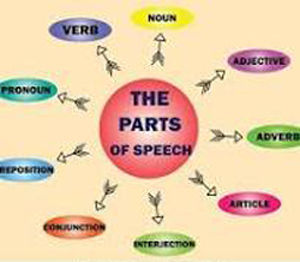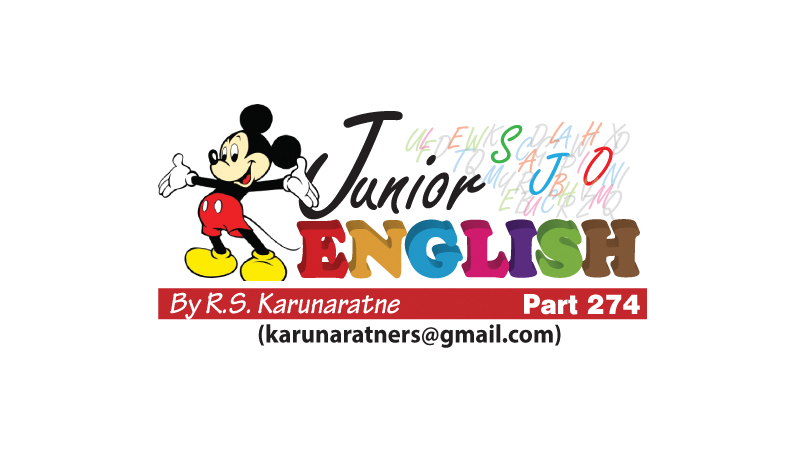The sentence
A group of words that makes complete sense is a sentence. There are four kinds of sentences:
1. Declarative or Assertive sentence (makes a statement or assertion) Mary sat in a chair.
2. Interrogative sentence (asks a question) Do you watch cartoons every day?
3. Imperative sentence (expresses a command) Be quiet.
4. Exclamatory sentence (expresses strong feelings)
What a shame!
Any sentence should have a subject and a predicate. The subject names the person or thing we speak about. The predicate tells something about the subject. The subject of a sentence usually comes first.
Honesty is the best policy.
In an imperative sentence the subject is left out.
Thank you. (The subject ‘I’ is understood)
****
Words are divided into eight different classes:
1. Noun
2. Adjective
3. Pronoun
4. Verb
5. Adverb
6. Preposition
7. Conjunction
8. Interjection
****
Phrases
A phrase is a group of words that makes sense, but not complete sense.
In the West …
At the railway station …
Clauses
A clause contains a subject and a predicate.
I think that you have made a mistake.
****
Parts of speech

*****
1. Noun
We use a noun to name a person, place or thing.
Emperor Asoka ruled India.
Sri Jayewardenepura is the capital of Sri Lanka.
The rose is a beautiful flower.
2. Adjective
An adjective adds something to the meaning of a noun.
Julius Caesar ruled the massive Roman Empire.
There are many beautiful waterfalls in Sri Lanka.
3. Pronoun
A pronoun is used instead of a noun.
The minister is absent because he is ill.
The keys are where you left them.
4. Verb
A verb says something about a person, place of thing.
The principal warned the errant student.
New York is a big city.
5. Adverb
An adverb adds something to the meaning of a verb, an adjective or another adverb.
Roger finished the work quickly.
The Lotus Tower is very tall.
6. Preposition
A preposition is used with a noun or a pronoun to show how the person or thing denoted by the noun or pronoun stands in relation to something else.
There is a snake in the garden.
Susan is fond of music.
Roger was accompanied by a friend.
Fever accompanied with delirium.
The work is adapted to his ability
This is not adapted for the purpose.
I agree with you.
I agree to your proposal.
I am anxious for the prize.
Anne is anxious about her health.
I concur with you.
I concur in your decision.
7. Conjunction
A conjunction joins words or sentences.
Ben and Sam are friends.
Emma ran fast, but missed the bus.
Nora makes fine linen and sells it.
Bob sold the horse because it went lame.
You must apologise or resign.
He is poor, but honest.
You can play while I sing.
God made the country and made the town.
Either take it or leave it.
It is neither useful nor ornamental.
I do not care whether you do it or not.
I’ll forgive you on condition that you don’t repeat the offence.
8. Interjection
An interjection expresses a sudden feeling.
Alas! My uncle is dead.
Hurrah! We have passed the exam.
Hello! What are you doing here?
Alas! He is dead.
Hurrah! We’ve won the game.
Oh! I got such a fright.
Hush! Don’t make a noise.
Expand your vocabulary
Circle A, B, C, or D that most accurately fits the meaning and check your answers with the key.









